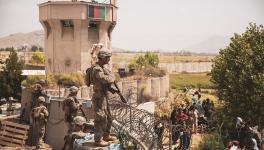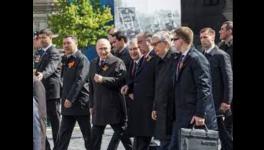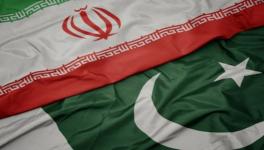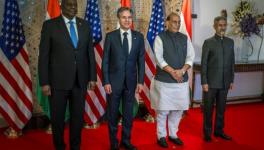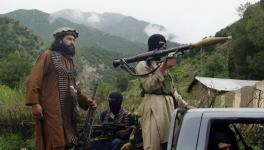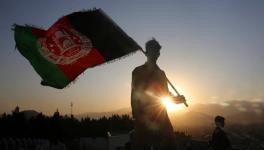Despite Assemblies And Multiple Rounds of Talks, Peace Remains Elusive in Afghanistan
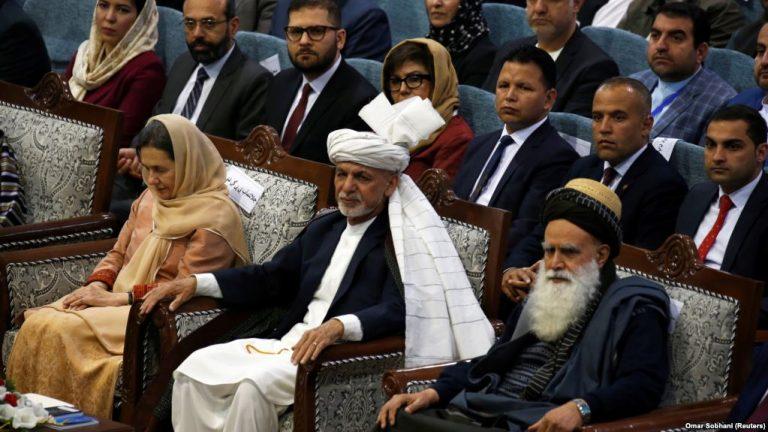
The Loya Jirga gave a call for a ceasefire during Ramadan but it was rejected by the Taliban.
A massive Loya Jirga (assembly) that was held in Afghanistan for four days from April 30 gave a call for a ceasefire during the Ramadan season. The offer was rejected by the Taliban but the event itself was significant as it marked an attempt by the government of Ashraf Ghani to emphasize its importance in the peace process in the country. The jirga also assumed significance in the light of the latest round of talks between the US and the Taliban in Doha, which the Afghan government was kept out of.
The grand assembly
The current Loya Jirga, a traditional gathering of the heads of different tribes, representing all 34 provinces of the country, had 3,200 delegates representing different tribes, political groups and social movements. The Loya Jirga is usually considered a legitimate consultative body in Afghan politics and taken seriously by most sections of the society. It is called in extraordinary situations to decide the collective action. The last such meeting was in 2013 to debate the Bilateral Security Agreement with the US which legitimized the presence of US troops in Afghanistan even after 2014.
The stated objective of the meeting was to decide the mechanism of the state’s involvements in the peace process. On its behalf, Ghani proposed his government’s main agenda. This included the continuation of the current Afghan constitution which was adopted after the Taliban was overthrown in 2001. The current constitution provides for a multiparty democracy. He also emphasized the need to guarantee freedom for women, media and speech.
Despite the significance of the Jirga, some important political leaders refused to be part of it. Chief executive Abdullah Abdullah, Gulbuddin Hikmatyar and Hamid Karzai are some significant absentees. They boycotted the event because they saw it as an attempt to influence the presidential elections scheduled for September. Many of these leaders are likely to contest these elections which were originally scheduled for April but were postponed to allow for peace talks. .
The Taliban too called for the boycott of the Jirga. According to a DW report, Taliban spokesperson Zabihullah Mujahid termed the Jirga, “an enemy’s conspiracy.” According to an Al-Jazeera report, the Taliban alleged that the jirga was sabotaging the peace talks with the USA.
‘The Peace Process’
These developments come in the aftermath of the canceled intra-Afghan meeting that was to take place on April 14. The meeting was canceled due to disagreements over the size and nature of official delegation. Apparently, the official delegation had 350 members, including 50 women, whereas the Taliban had only 10 members. The Taliban was apprehensive of being outnumbered. The US is keen on including the government in the talks but has not been able to convince the Taliban of the same.
These talks have their origin in the reluctance of the Trump administration to be involved in a “never ending war.” There have been five rounds of ‘face to face’ talks since February this year. The US is hoping to reduce the number of troops and also its financial burden. According to various media reports the US spends around $45 billion every year in its war efforts in Afghanistan. The US is also looking for a more indirect role in the region’s politics.
The negotiations, complicated as they are, might have some chance of bringing a semblance of peace in the country. The civil war in Afghanistan has been going on for almost 40 years now. The country has struggled to establish a democratic system. Ashraf Ghani became president in 2014 in a controversial election. His rival Abdullah Abdullah was made chief executive in Ghani government as a compromise deal. Amid all this, the Taliban continues to control at least one third of the country’s territory directly.
The Taliban does not recognize the elected government in Kabul and continues its war against it. Even its recent spring offensive against ‘ISIS forces’ is seen as also targeting forces loyal to the government.
The US would not like to withdraw its troops completely from Afghanistan given its geo-political and strategic interests in the country. Its presence in Afghanistan is significant for the execution of its imperialist policies towards Iran, Pakistan and the Central Asia.
However, the Taliban wants the withdrawal of foreign troops as a precondition for any progress in the talks. The US insists that a ceasefire is necessary for effective withdrawal of the troops. The government and opposition forces do not want the US troops to move out immediately. The presence of the US and NATO troops under Resolute Support provides them a crucial support against any assault from Taliban which is still strong enough to challenge the state forces.
The talks with Taliban have created apprehensions among some Afghan constituencies about the fate of the process of democratization, started after the removal of Taliban. They fear that it will be in peril if Taliban comes back to power. The peace framework so far has nothing on the Taliban’s approach towards Afghanistan’s constitution. Groups are also apprehensive about the status of women in case Taliban becomes a legitimate force. This is a genuine concern in the context of Taliban’s record on the issues of freedom of women and other human rights. So far, there has been no direct mention of human rights in the talks either, which provides legitimacy to such apprehensions.
Other Players
The US has tried to create an international consensus on the peace process with Taliban. US envoy Zalmay Khalilzad visited Pakistan recently and has got the support of the Imran Khan- led government there for the talks. Pakistan is a significant country given the fact that it shelters the largest number of Afghan refugees. It is also considered to have influence over Taliban leadership.
On April 27, the US, Russia and China came up with a joint declaration which calls for an Afghan-led peace process. It also calls for a regional consensus in support of the talks with Taliban in return for the Taliban’s fight against ISIS and Al-Qaida. The rise of ISIS in the country, called IS-Khorasan, has made the war in the country even more complex. This is one of the factors leading to the US pursuing talks with the Taliban. However, it is a fact that most of the ISIS fighters are former Taliban members.
The rise of ISIS has also been one of the reasons for Taliban to agree for the talks. There is a possibility that it will engage with other groups as well. The Taliban had agreed to have talks with some opposition forces led by Hamid Karzai in Moscow in February. This could not go further due to fundamental disagreements over the presence of the government in the talks.
At the end of the day, the Taliban’s reluctance to engage with the government makes the whole process unviable. The original idea of two rounds of negotiation – first with the US and then with the Afghan government – looks unrealistic given the desperation and concerns raised by stakeholders. The fact that the government was compelled to call for a Loya Jirga at this moment is a sign of that desperation.
Afghan-led Initiative
The war in Afghanistan was a result of eternal, imperialist interventions. There is a constituency for peace in Afghanistan and it needs serious engagement. Partial, one-sided initiatives, such as talks with Taliban while bypassing the other major stakeholders will not bring the desired results. It might create more trouble instead. There is no one entity in Afghanistan which can claim legitimacy and can effectively implement peace. All the stakeholders need to come together and lead the peace process. The US and other imperialist forces must stop using the process to opportunistically serve their own interests and let the Afghans decide their fate.
Get the latest reports & analysis with people's perspective on Protests, movements & deep analytical videos, discussions of the current affairs in your Telegram app. Subscribe to NewsClick's Telegram channel & get Real-Time updates on stories, as they get published on our website.










